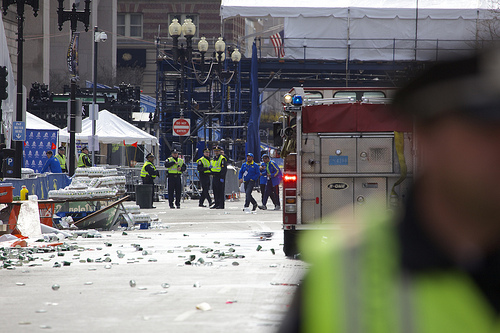
Karl Marx mused that history first appears as tragedy and then as farce. That may not apply to the United States, as Americans are too often amnesia-prone when it comes to history. Americans’ ability to ignore or forget history is legion. Three cases underscore this point.
A popular critique of today’s CIA is that is has become a killing machine thereby diluting its role as the principal collector of foreign intelligence and its main duty of informing the nation about current and emerging dangers. CIA-run drone campaigns in Pakistan, Afghanistan and Yemen that kill enemy combatants and suspected terrorists form Exhibit A in these allegations.
Whether the agency has downgraded its intelligence functions is unclear. Yet, regarding its status as a killing machine, how quickly we forget.
In Vietnam, what became known as the Phoenix Program began in 1965 as a CIA-led operation. The purpose was to neutralize the National Liberation Front, the political arm of the Viet Cong, and was directed against civilian suspects not soldiers.
In 1967, Phoenix was absorbed into the Civil Operations and Revolutionary Development Support program. William Colby, later CIA director, was its first head followed by Ambassador Robert W. Komer.
Phoenix operatives were a mix of CIA, U.S. and Australian Special Forces and South Vietnamese personnel and mercenaries. Until it ended in 1972, Phoenix “neutralized” some 80,000 NLF and Viet Cong of which about 30,000 were killed. In many cases, assassination was too kind a term and torture and barbaric interrogation practices were part of the standard operating procedure.
Compared with Phoenix, enemy combatants killed so far by drone strikes have been a miniscule percentage as technology bypassed the need for “terminating with prejudice” at close range.
The bombings in Boston last week triggered national condolences and dominated media reporting. Interestingly, coverage of the thousands or more killed and injured on the same day from Venezuelan protesters contesting the elections to terrorist attacks against innocent Iraqis in Baghdad and major cities, Syria, Pakistan and several African countries has been trivial. But even given the terrorist bombings of Oklahoma City in 1995 and the attempts against the World Trade Center culminating with Sept. 11, 2001, what is new?
Alfred Nobel and his invention of dynamite a century and a half ago gave terrorism a powerful weapon. In 1919, 36 dynamite-laden bombs were mailed to distinguished Americans from a Supreme Court associate justice to the U.S. attorney general and business tycoons John D. Rockefeller and J.P. Morgan. That was immediately followed by eight bombing attempts that only managed to kill a night watchman.
In 1920, J.P. Morgan on Wall Street was bombed and three dozen killed. The country panicked.
The attacks were attributed to Italian anarchists, none of whom was apprehended, tried or convicted. But in the “Red Scare” prompted by these bombings and presided over by U.S. Attorney General A. Mitchell Palmer, more than 10,000 suspects were rounded up, many illegally, and about 550 were deported. And the country was indeed terrorized by these bombings.
Last is an economic example. The Obama administration and Congress have managed simultaneously to raise taxes and cut spending virtually guaranteeing a halt in the sadly tepid economic growth. Debt and deficits are indeed ticking time bombs.
But we forget that during the Great Depression both Presidents Herbert Hoover and Franklin D. Roosevelt proposed balanced budgets. And while FDR changed course to pursue deficit spending, the depression was technically worse in 1938 and 1939 than in 1929.
World War II finally ended the depression and turned the United States into an economic colossus.
For all the discussion of Boston, CIA targeted killings and the current economic mess, history is forgotten. Terrorism isn’t new even when it comes to bombings. And Americans are infinitely safer than most people. The CIA has had a history of targeted assassinations that dwarf the current drone strikes and for all of the argument about water boarding three captured al-Qaida leaders, relied on real torture and murder in Vietnam.
As for the economy, war is NOT a solution. But a massive injection of investment is. Readers will be bored with another attempt to promote a national infrastructure bank funded by private capital in the form of long-term bonds, guaranteed by the government and repaid by user fees and tolls. However, this is the stimulus the nation so desperately needs.
Americans mourn the latest attacks along with fellow citizens in Boston. And knowledge of the past about the recurring use of terror to terrorize is no anesthetic to relieve our pain.
That said, better understanding of history might make dealing with the dangers of today and the uncertainties of tomorrow a little easier. Historical amnesia is not the answer.
Harlan Ullman, an Atlantic Council senior advisor, is chairman of the Killowen Group. This column is syndicated by UPI.
Photo credit: Flickr
Image: 8658794750_d8a7b9980f.jpg
